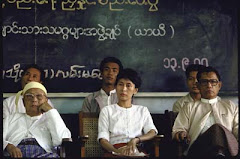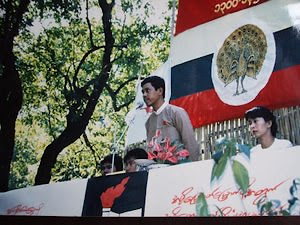With Burma’s economy having for
decades been operating without an appropriate system of government budgeting
and accounting, the Burmese people have a complete lack of information about
their country’s overall financial picture. The government therefore urgently
needs to implement measures to improve governance of its institutions, ensure
fiscal transparency and improve fiscal policy if it is to properly transition
towards being a successful, modern nation. Read more...
The hybrid-military-dominated
parliament was this week scheduled to debate the union budget. But designing systems to
ensure fiscal discipline requires input from all stakeholders on macroeconomic
and social issues.
There’s no universal formula for
ensuring fiscal discipline, but regardless of how a country gets there, it
should require organizations to ensure that expenditures can be met without
relying on significant debt (or excessive printing of money) and that
fiscal information is released publicly in a timely manner. To ensure balance,
Burma’s budget should be aimed at allocating more to education, health and social
affairs, while reducing overspending on the military and defense sector.
The nation’s economic growth and
performance will ultimately need to be based on the foundations of good
governance and prudent fiscal policy.
In practical terms, this means the
administration should at the outset establish a special budget reform taskforce
to concentrate on tackling the challenges likely to occur during the budget
reform process. In order to prevent the deterioration of the prospects for
fiscal reform, parliamentarians will have to play a more proactive role in
budgetary discussions. The government, for its part, should send its economists
overseas to study fiscal reforms and economic transitional experiences.
Second, according to Transparency International’s Corruption Perceptions Index,
Burma has been ranked among the most corrupt countries in the world for
decades. This corruption has a direct impact on the people and the economic
health of the entire nation. Both the generals and the state’s bureaucrats have
responsibility for the existence of such corruption as they have failed to
ensure adequate budget and fiscal management. State agencies need to be more
accountable to the people of Burma.
Third, Burma’s former generals
printed money to try to ensure double-digit economic growth, but such an
approach has led to hyperinflation. Burma must work to combat inflation and
ensure a stable monetary policy in order to create the environment needed for
economic prosperity, financial investment, and stability.
Fourth, although sub-national
governments were only established recently, the union government ought to
encourage them to establish their own fiscal plans and taxation. They must
manage their revenue, expenditures and projects by themselves.
Finally, the people’s participation
in the budgeting process and financial reporting should be transparent and
accountable. The public should be informed about their foreign debt and overseas
borrowing. Burma needs to undertake profound economic and fiscal reform if it
is to march down the path towards a more democratic society. The budget
submitted by the government will be an indicator of just how serious the
government is about economic reform and tackling poverty.
Naing Ko Ko is a recipient of the
2010 Amnesty International New Zealand Human Rights Defender Award and a former
Burmese political prisoner.











































No comments :
Post a Comment